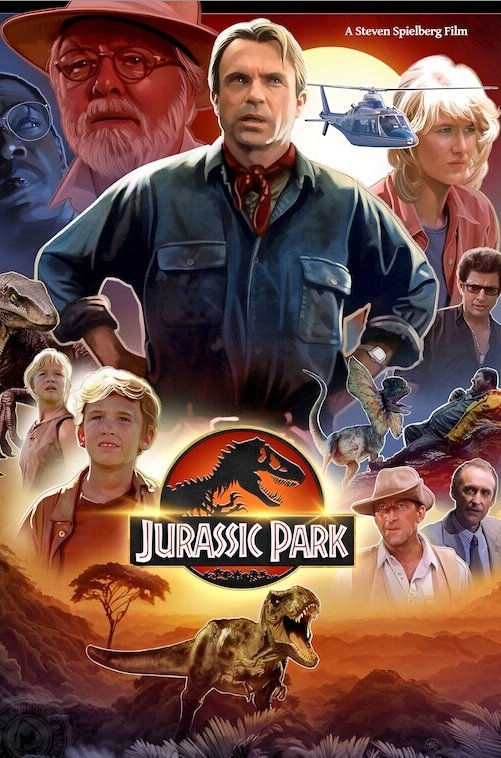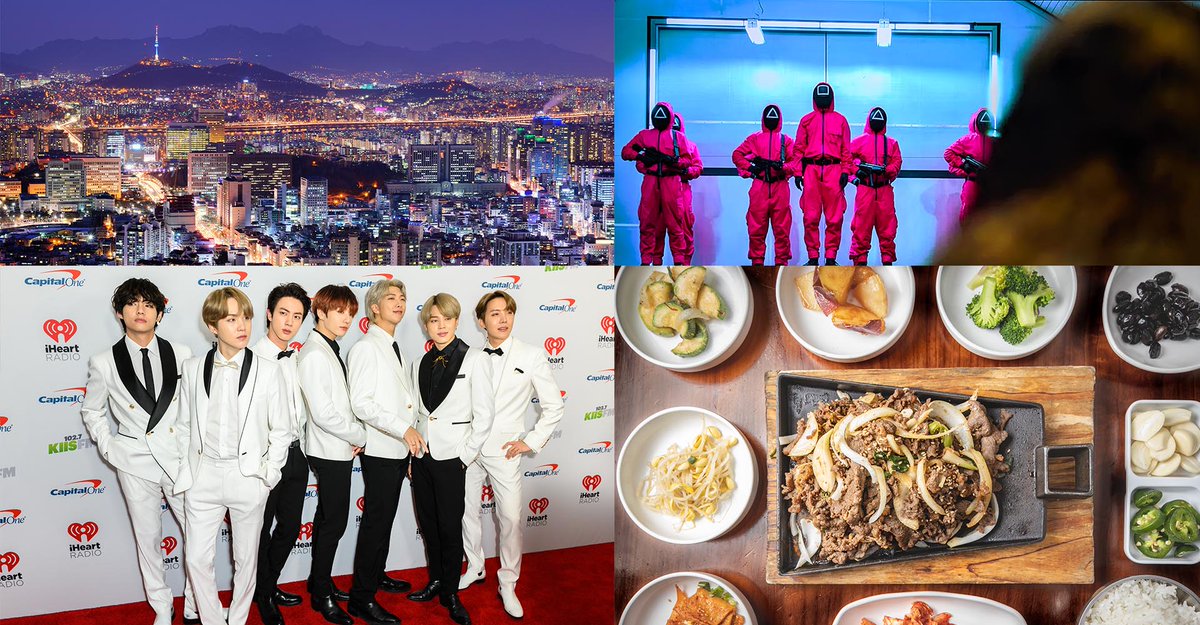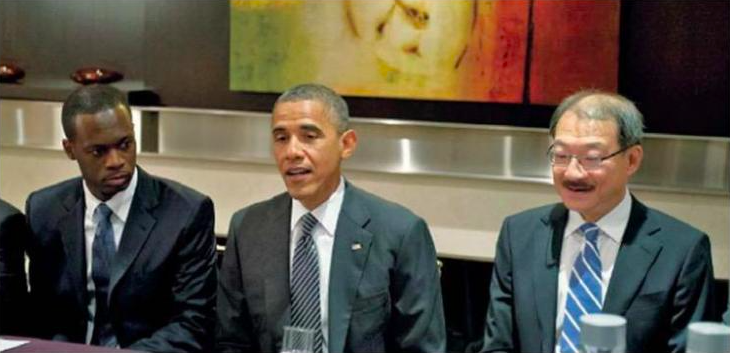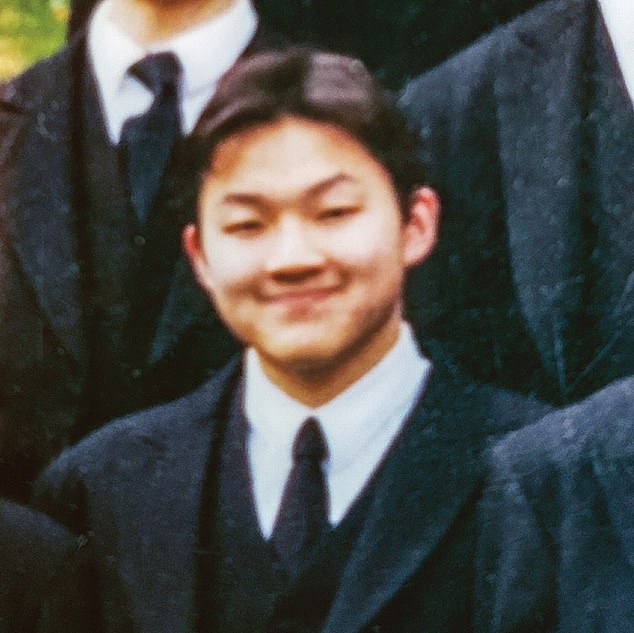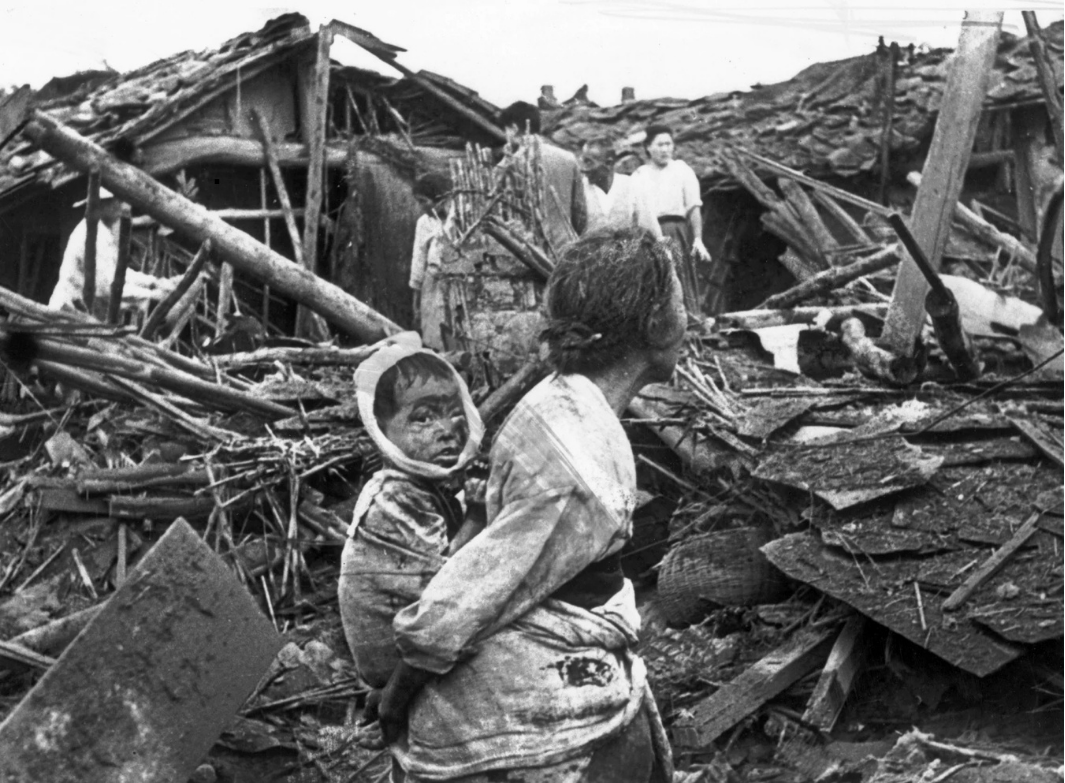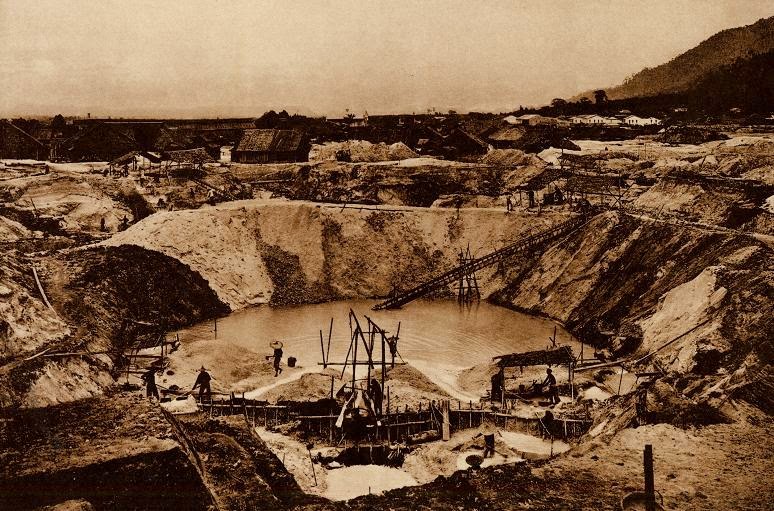In 2020, Parasite made history at the Oscars.
It marked another peak of the Korean Wave, or what they call Hallyu.
How did this cultural wave become so big?
Let’s go back to where it all began 👇
It marked another peak of the Korean Wave, or what they call Hallyu.
How did this cultural wave become so big?
Let’s go back to where it all began 👇

First, what is "Hallyu"?
"Hallyu" (한류), or the Korean Wave, refers to the global spread of Korean culture.
It began with films, TV dramas, and pop music, then expanded to food, beauty, and much more.
Korea successfully turned its culture into a powerful national asset.
"Hallyu" (한류), or the Korean Wave, refers to the global spread of Korean culture.
It began with films, TV dramas, and pop music, then expanded to food, beauty, and much more.
Korea successfully turned its culture into a powerful national asset.

Hallyu didn't happen by accident. It was by design.
It all began in 1994, after the era of democratic reform.
A presidential advisory board made a mind-blowing comparison:
The box office revenue of Jurassic Park (1993) = The export value of 1.5 million Hyundai cars.
It all began in 1994, after the era of democratic reform.
A presidential advisory board made a mind-blowing comparison:
The box office revenue of Jurassic Park (1993) = The export value of 1.5 million Hyundai cars.

This comparison sparked a crucial realization:
"Culture can be an economic weapon."
So, in the same year, the Korean government established the Cultural Industry Bureau.
This marked the beginning of a massive, national-level experiment.
"Culture can be an economic weapon."
So, in the same year, the Korean government established the Cultural Industry Bureau.
This marked the beginning of a massive, national-level experiment.
This experiment started with film.
The 1995 Film Industry Act promoted the screening of local works.
Public funds began to flow into production, and censorship was reduced.
Writers, directors, and actors rose to the occasion with bold, fresh works.
Which in turn attracted Chaebols to invest in the entertainment industry.
The 1995 Film Industry Act promoted the screening of local works.
Public funds began to flow into production, and censorship was reduced.
Writers, directors, and actors rose to the occasion with bold, fresh works.
Which in turn attracted Chaebols to invest in the entertainment industry.
Meanwhile, a revolution was already happening in music.
In 1992, a group called Seo Taiji & Boys broke every rule of Korean pop music, mixing American hip-hop, rock, & rap.
They laid the blueprint for the modern K-pop "idol" group
Their success inspired entertainment agencies to create the "idol system".
In 1992, a group called Seo Taiji & Boys broke every rule of Korean pop music, mixing American hip-hop, rock, & rap.
They laid the blueprint for the modern K-pop "idol" group
Their success inspired entertainment agencies to create the "idol system".

But this experiment, while promising, was supercharged by Asian Financial Crisis (1997).
The Korean Won collapses.
The country is forced to take a massive $58 billion bailout from the IMF.
"Culture as an industry" idea was no longer just an experiment.
It became a lifeline.
The Korean Won collapses.
The country is forced to take a massive $58 billion bailout from the IMF.
"Culture as an industry" idea was no longer just an experiment.
It became a lifeline.

President Kim Dae-jung, who came to power in 1998, fully embraced it.
He declared that culture would be a core pillar of Korea's 21st-century economy.
He declared that culture would be a core pillar of Korea's 21st-century economy.

An early success that proved this strategy right: Shiri (1999).
An action thriller about North-South Korean spies.
Shiri not only competed, it BEAT Titanic (the biggest movie in the world at the time) at the Korean box office.
From then on, investment in film skyrocketed.
An action thriller about North-South Korean spies.
Shiri not only competed, it BEAT Titanic (the biggest movie in the world at the time) at the Korean box office.
From then on, investment in film skyrocketed.

Next, Hallyu expanded through TV dramas.
Winter Sonata (2002) became a phenomenon in Japan and across Asia.
Its emotional love story, beautiful cinematography, and heart-wrenching music helped Korean dramas find a place in the hearts of international audiences.
Winter Sonata (2002) became a phenomenon in Japan and across Asia.
Its emotional love story, beautiful cinematography, and heart-wrenching music helped Korean dramas find a place in the hearts of international audiences.

This was the beginning of Hallyu 1.0
The focus was on dramas and films exported to neighboring countries while the foundations of K-pop were being laid.
In 1995, the export value of Korean dramas was just USD 5.5 million.
By 2007, it had soared to USD 150 million.
And that was just the beginning.
The focus was on dramas and films exported to neighboring countries while the foundations of K-pop were being laid.
In 1995, the export value of Korean dramas was just USD 5.5 million.
By 2007, it had soared to USD 150 million.
And that was just the beginning.
Entering the 2000s: the K-pop revolution began.
Groups like H.O.T., BoA, TVXQ, and Super Junior gained popularity in Japan and China.
Building loyal fanbases.
But the biggest change came when YouTube arrived.
Groups like H.O.T., BoA, TVXQ, and Super Junior gained popularity in Japan and China.
Building loyal fanbases.
But the biggest change came when YouTube arrived.

Hallyu 2.0 began. The digital wave.
With social media and YouTube, they no longer needed Western radio to break into the global market.
Fans could discover music directly.
With social media and YouTube, they no longer needed Western radio to break into the global market.
Fans could discover music directly.
Groups like BIGBANG and SNSD began building global fanbases that were incredibly active and organized.
For example, BIGBANG's concerts in Paris and Latin America sold out in minutes.
It was an unprecedented phenomenon, driven by the power of a digital fandom.
For example, BIGBANG's concerts in Paris and Latin America sold out in minutes.
It was an unprecedented phenomenon, driven by the power of a digital fandom.

The peak? Gangnam Style by PSY (2012).
A satirical song about the lavish lifestyle in Gangnam became an unexpected sensation.
✅ The first video to hit 1 billion views on YouTube.
✅ Charted on Billboard.
K-pop officially went global.
A satirical song about the lavish lifestyle in Gangnam became an unexpected sensation.
✅ The first video to hit 1 billion views on YouTube.
✅ Charted on Billboard.
K-pop officially went global.

The Korean government didn't stop there.
They doubled down.
✅ Channeled funds for idol training.
✅ Built concert halls and production facilities.
✅ Expanded Korean language education worldwide.
✅ Encouraged investment in entertainment companies.
This was all part of the nation's soft power strategy.
They doubled down.
✅ Channeled funds for idol training.
✅ Built concert halls and production facilities.
✅ Expanded Korean language education worldwide.
✅ Encouraged investment in entertainment companies.
This was all part of the nation's soft power strategy.
Entering the post-2015 era: Hallyu 3.0.
The diversification wave.
This time, it wasn't just music or drama. It encompassed the entire cultural spectrum.
✅ Webtoons
✅ E-sports
✅ K-Beauty & Fashion
The diversification wave.
This time, it wasn't just music or drama. It encompassed the entire cultural spectrum.
✅ Webtoons
✅ E-sports
✅ K-Beauty & Fashion

This wave of success was happening across the board.
1. Parasite (2019) became a game-changer for Korean cinema.
🏆Won Best Picture at the Oscars.
🏆Bong Joon-ho became a celebrated director.
🏆Its sharp social commentary + local narrative was relatable worldwide.
It proved that Korean storytelling has universal appeal.
1. Parasite (2019) became a game-changer for Korean cinema.
🏆Won Best Picture at the Oscars.
🏆Bong Joon-ho became a celebrated director.
🏆Its sharp social commentary + local narrative was relatable worldwide.
It proved that Korean storytelling has universal appeal.

2. BTS is more than just a band.
✅ Their song "Dynamite" generated over USD 1.4 billion in economic impact.
✅ Their agency, Big Hit, was listed on the stock exchange with a valuation of USD 8.4 billion.
✅ They served as special presidential envoys to the UN.
✅ Their song "Dynamite" generated over USD 1.4 billion in economic impact.
✅ Their agency, Big Hit, was listed on the stock exchange with a valuation of USD 8.4 billion.
✅ They served as special presidential envoys to the UN.

3. The beauty sector also exploded.
Brands like Laneige,Beauty of Joseon, and AmorePacific became household names worldwide.
"K-beauty" became a global trend. The 10-step skincare routine? It started in Korea.
Exports of these products are worth billions.
Brands like Laneige,Beauty of Joseon, and AmorePacific became household names worldwide.
"K-beauty" became a global trend. The 10-step skincare routine? It started in Korea.
Exports of these products are worth billions.

4. Let's not forget variety shows.
The most iconic example is Running Man, with over 750 episodes and counting.
Its unscripted, game-based format,and non-stop laughter turning it into a global favorite.
The most iconic example is Running Man, with over 750 episodes and counting.
Its unscripted, game-based format,and non-stop laughter turning it into a global favorite.
So, what has been the positive impact of all this on Korea?
✅ Over USD 107 billion contribution from the culture industry to the economy (2020).
✅ A significant increase in tourism.
✅ A rise in cultural nationalism and national pride.
✅ Over USD 107 billion contribution from the culture industry to the economy (2020).
✅ A significant increase in tourism.
✅ A rise in cultural nationalism and national pride.
But not everything is rosy.
Hallyu also comes with its dark side and challenges:
❌ "Slave contracts" that are exploitative.
❌ Extreme mental pressure on artists.
❌ Major scandals, from the Burning Sun case to drug/corruption related controversies.
These are the serious challenges that come with its rapid growth.
Hallyu also comes with its dark side and challenges:
❌ "Slave contracts" that are exploitative.
❌ Extreme mental pressure on artists.
❌ Major scandals, from the Burning Sun case to drug/corruption related controversies.
These are the serious challenges that come with its rapid growth.

So, what is the secret to Hallyu's success?
It’s not a coincidence. It's a masterclass in strategy.
1/ Strategic government support.
2/ A commitment to high-quality, authentic art.
3/ Simultaneous promotion of language and culture.
It’s not a coincidence. It's a masterclass in strategy.
1/ Strategic government support.
2/ A commitment to high-quality, authentic art.
3/ Simultaneous promotion of language and culture.
This Hallyu foundation, built from bold vision and strategic action, is what made everything else possible.
Without the success of Shiri, there would be no Parasite.
Without Seo Taiji and Boys, there would be no BTS.
Without Winter Sonata, there would be no Squid Game.
Without the success of Shiri, there would be no Parasite.
Without Seo Taiji and Boys, there would be no BTS.
Without Winter Sonata, there would be no Squid Game.
• • •
Missing some Tweet in this thread? You can try to
force a refresh






